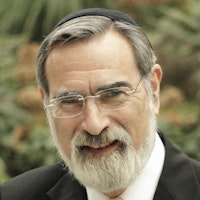For though my faith is not yours and your faith is not mine, if we each are free to light our own flame, together we can banish some of the darkness of the world.
Jonathan Sacks

Free to Light
Topic: Truth, Law, & Principle
For though my faith is not yours and your faith is not mine, if we each are free to light our own flame, together we can banish some of the darkness of the world.
Jonathan Henry Sacks, Baron Sacks, was born on March 8, 1948, in Lambeth, London. He became a notable British Orthodox rabbi, philosopher, theologian, author, and politician. From 1991 to 2013, he served as the Chief Rabbi of the United Hebrew Congregations of the Commonwealth, playing a pivotal role in guiding and representing Jewish communities across the region.
Beyond his leadership in the Jewish community, Sacks was deeply passionate about character education, morality, and the importance of family. He frequently emphasized the role of ethical teachings in forming well-rounded individuals and believed in the necessity of strong family bonds for a stable society. An accomplished author, his books often explored the intersections of faith, morality, and contemporary challenges, aiming to make religious insights relevant to a wide audience. These works not only resonated within religious circles but also found acclaim in academic and political spheres due to their timely and profound insights.
Sacks passed away on November 7, 2020, in London. His legacy, marked by interfaith dialogue, advocacy for character education, and a steadfast commitment to the Jewish community, continues to inspire many. He is survived by his wife, Elaine Taylor Sacks, whom he married in 1970.
The Home We Build Together
Sacks, Jonathan. The Home We Build Together: Recreating Society. Continuum, 2009, [Rabbi Lord Jonathan Sacks (rabbisacks.org website)].

Jonathan Sacks
Theme: The Light of Truth

About This Rabbi Jonathan Sacks Quotation [Commentary]
Jonathan Sacks’s quote emphasizes the strength found in the diversity of faiths, suggesting that individual beliefs, when harmonized, have the potential to dispel global darkness. It celebrates the uniqueness of each faith, arguing that personal convictions contribute to collective enlightenment. This concept aligns with the theme of “the light of truth,” illustrating that truth emerges from a multitude of perspectives, each adding depth and color to the understanding of the divine and moral principles. Sacks advocates for the importance of each person lighting their own flame, metaphorically encouraging authenticity in belief as a means to contribute to a broader illumination.
The provided context underscores faith as a personal yet universal experience, connecting individuals to the divine. It portrays faith as a transformative realization of divine presence in moments of darkness, suggesting that embracing one’s faith fully allows for a direct experience of the divine. This connection with the divine, according to Sacks, turns individuals into vessels of light. When combined, these individual lights can significantly reduce the world’s darkness, embodying the “light of truth.” This shared illumination demonstrates how diverse faiths can come together in understanding and compassion, highlighting the collective journey towards enlightenment.
By focusing on the diversity of faiths as a collective strength, Sacks’s message encourages authentic living of one’s faith to contribute to a more enlightened world. It suggests that the “light of truth” is enriched by each unique faith, leading to a more inclusive and compassionate understanding of the divine. This message serves as a reminder that differences should be celebrated, not erased, as they offer paths to enlightenment. Through this lens, the collective light of individual truths creates a brighter, more inclusive world, where diversity is seen as a source of unity and strength.
Additional Jonathan Sacks Quotes
Resources
Related Quotes
Copyright © 2017 – 2026 LuminaryQuotes.com About Us